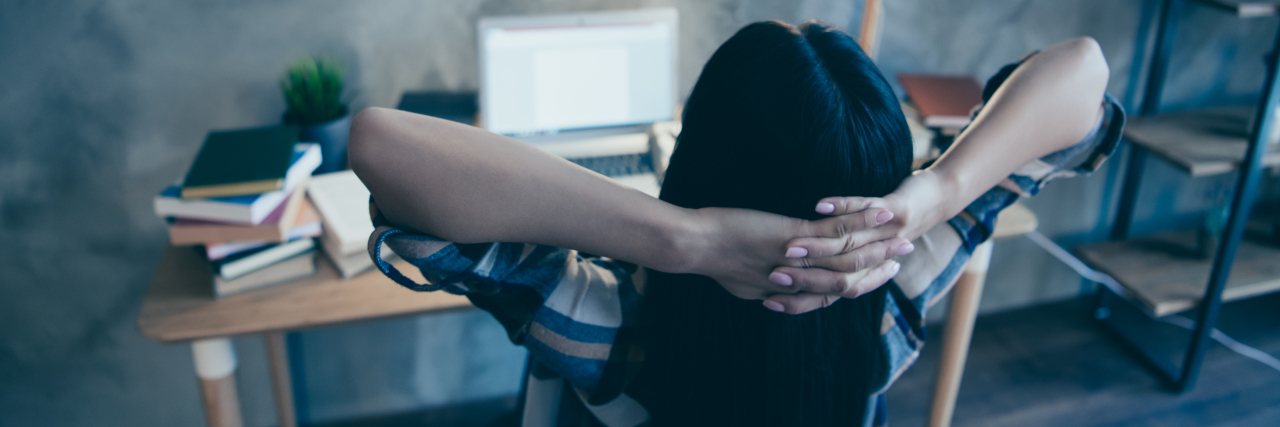Thoughts About Lockdown Learning From a Homeschool Abuse Survivor
Editor's Note
If you have experienced emotional abuse, the following post could be potentially triggering. You can contact the Crisis Text Line by texting “START” to 741741.
Oh, distance learning. We’re all either teaching, being taught, or listening to someone lament the unique trials of trying to get a third-grader to follow the instructions posted in Google Classroom. But there’s another side to this that you probably haven’t encountered from your nearest and dearest: all this talk of schooling at home brings up some nasty memories for those of us who were homeschooled in an abusive environment.
• What is PTSD?
For a while I thought, “Why broach this topic? Homeschooling can be a good thing!” But then I discovered that there’s an entire subreddit dedicated to the topic of traumatic homeschooling. It’s called “Homeschool Recovery” and currently has just over 6,000 members.
First, let me make my position clear:
I think that homeschooling can be a fantastic option when it works well. There are loving parents with the brains, tools, and dedication to set up a fabulous domestic learning environment for their kids. Certainly, homeschooling might be the best choice for a young person who experiences bullying at school, or whose self-motivated learning habits are better suited to independent study. Personally, I know some parents who made the choice to teach at home early on, and kids and parents alike are thriving.
Keeping all of that in mind, let’s talk about the obvious potential drawback to homeschooling — there has to be some alternative to conventional methods of socialization. And those alternatives are out there: there are homeschool meetups, local recreation centers, public library family programs, and more. All of these are viable substitutes for first-period locker banter and after-school photography club meetings.
However, in my case — and, as I have just recently discovered, in the case of so many others — my parents didn’t want me to have friends, or romantic partners, or exposure to adults who were not abusive.
So where does this leave me now, as a 28-year-old woman?
Well, first off, even without all the current discussion around “distance learning isn’t healthy for kids” and “teenagers aren’t meant to be kept away from their social environments,” I had to patch myself together after being weighed down by the trauma of isolation. The few friends I managed to grab hold of in my formative years were rapidly dismissed as shallow and vapid – products of the “real world.” This mysterious realm was one that I was warned to avoid. I was told that it was frightening and dangerous (adjectives more applicable to my home environment than society at large, I have since learned); yet I was also reminded daily that I was too impractical, foolish, forgetful, and lazy to participate in it (tell that to my Ivy League diploma, my ability to pay rent during the pandemic, and all the friends I made after I moved to New York City).
Unsurprisingly, I wasn’t allowed to go on dates. At the same time, heterosexuality was mandatory and my coming out went about as well as the process of trying to enjoy a tuna sandwich with cats around (yeah, I adopted a few fuzzbeans after I left home. I was told I was supposed to hate cats and pretty much any other animal. Joke’s on you, Mom. Butternut says she’s not sorry that I ditched you).
That brings us to today.
Thanks to the pandemic, I am currently faced with two dilemmas: first, the process of building and exploring the social life I was denied during the most crucial years has been interrupted by COVID-19 and all its (necessary but) crippling social restrictions; and second, I hear a lot about the negative effects of distance learning, which is — and I hate this word as much as you do, but here we are — a real trigger for me.
It angers me. It angers me to be reminded that I was knowingly deprived of a normal life. It angers me that any parent would willingly subject a child to cultish isolation and ongoing abuse, all in the name of, “You’re lucky that you’re getting the education you are. I’ve made so many sacrifices for you.”
We’re finally talking about what it looks like for kids to be taken away from traditional school settings. For some kids, it works as well as or better than an in-person classroom. For others, it’s been pretty damaging.
This is a conversation well worth having, and I think most of us are going to end up a part of the discussion one way or another. But, for better or worse, it’s a sore subject that’s forced me to explore a difficult past, and I wish that I could move on from the very idea of learning at home.
Photo credit: Deagreez/Getty Images

